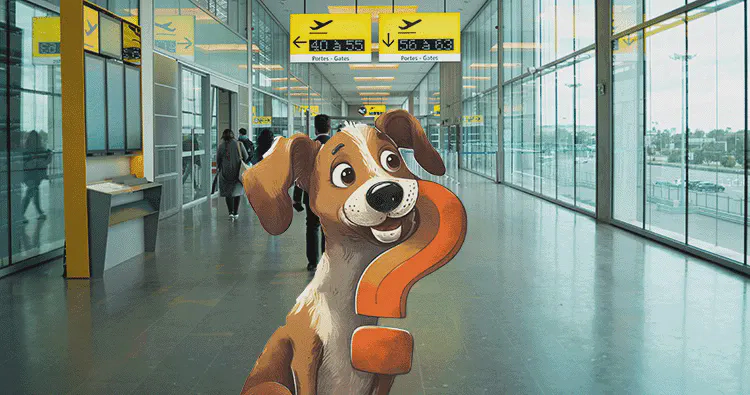
- If the proper requirements are met, most pets can travel safely to their destination, although they may be a bit stressed from the journey. To ensure a safety experience, it’s important to plan ahead and talk to your vet to ensure your pet is healthy enough for travel and that they are not suffering from any illnesses that could be worsened by heat or stress, during the travel. This vet check-up is also an excellent opportunity to ensure that your furry friend’s vaccinations are up to date. Air travel can be dangerous for animals with short nasal passages, such as bulldogs, pugs, and Persian cats, as they are vulnerable to oxygen deprivation and heat stroke.
- The cost of relocating your furry friend to another country can vary significantly depending on several factors. These include the size of your pet as bigger pets typically require larger crates, which impacts both travel and crate costs. Moreover, the regulatory requirements for importing pets can vary between the origin and destination countries, impacting the necessary paperwork and potential quarantine obligations. Additionally, different countries have varying import fees for pets, which should be factored into your budget. Lastly, it’s essential to account for any special medical needs or dietary considerations your pet may require during the relocation process.
-
When it comes to traveling with your pet internationally, it is important to understand that each country has different requirements. However, some of the most common components include:
-
International health certificate: This document must be completed and certified by an accredited veterinarian after examining your pet and determining that it is free of infectious diseases. It is generally valid for one trip and within a specific time frame from the date of issue.
-
Export and import paperwork: It is imperative to obtain government-issued export paperwork from the departing country and import paperwork from the destination country. Proper documentation is essential to comply with all legal and regulatory requirements.
-
Microchip: Your pet must be microchipped so that it can be easily and reliably identified. The microchip is a small inert device that carries a unique number which is read by a handheld scanner. Many countries require this to ensure that the pet being brought in is the same one specified in the paperwork. Some countries require the microchip to be given before the vaccinations to ensure that your pet is identified before vaccination.
-
Up-to-date vaccinations: Almost every destination requires a rabies vaccination. Depending on the destination country, cats and dogs may also need additional vaccinations.
-
Parasite prevention: Some countries have strict requirements for pets to be treated against parasites by a registered veterinarian for topical and internal parasite treatments prior to travel.
-
-
For a happy and healthy travel experience for your pet, it’s important to prioritize a veterinary visit before your trip. By having a check-up, you can ensure that your pet is fit to travel and your veterinarian can address any potential concerns. If your furry friend isn’t used to traveling, crate training is crucial. Here’s how to make the crate a positive experience:
- Start in a familiar environment - Place the crate in your home and leave the door open so that your pet can explore at their own pace.
- Make it inviting - Add some enticing treats or toys inside the crate. This creates a positive association with the crate.
- Gradually increase crate time - Over several days, gradually increase the amount of time your pet spends inside the crate, rewarding calm behavior.
- Choose the right crate - Select an airline-approved crate that provides ample space for your pet to stand up, turn around comfortably, and lie down. Proper ventilation is crucial.
- Comfort is key - Include a familiar blanket or absorbent pad from home to provide a sense of security and comfort during travel.
By following these steps, you can create a positive introduction to the crate, making the travel process smoother for both you and your furry friend.
- If your destination country allows pet imports and the airport accepts live animals, we can definitely assist you in getting your furry friend there safely and smoothly.
 "Customer Service"
"Customer Service"